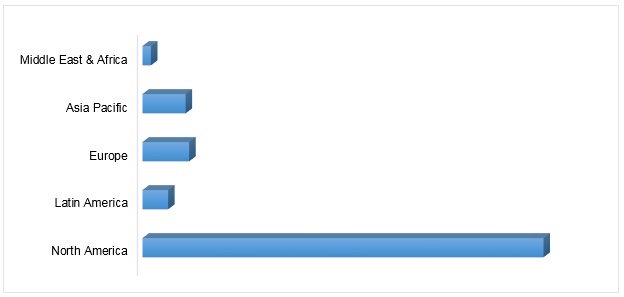
Acting as a Facilitator for Youth Employment, Coding Bootcamp Market is Estimated to Grow at a CAGR of 12.27% Globally over the Forecast Years (2019 – 2027), Says Absolute Markets Insights.
As society is becoming increasingly digital and interconnected, information and communication technology (ICT) sector is growing exponentially. With technological transformation growing at an accelerated pace, companies across a wide range of sectors are facing a shortage of professionals having coding skills to fulfill their needs. This demand for coders is serving as an opportunity for the youth to pursue careers as junior developers in the digital economy, which is propelling the coding bootcamp market. Thus, these coding bootcamps act as facilitators to meet the demand against the backdrop of global youth unemployment.
Nowadays, these programs are preferred over other affordable and less time-consuming training options such as online tutorials and courses. In comparison to these options, coding bootcamps have evident advantages. For instance, coding bootcamps prepare students with interpersonal skills needed for effective teamwork and provide experience of working on a product from start to finish. On the contrary, self-taught methods of online training impart only technical skills. It is observed that basic computer science and coding training offered by other platforms is less likely to help people get a job. However, the curriculum of coding bootcamp is designed in such a way that is majorly focuses on employability, thus boosting the coding bootcamp market. For instance, California based Hack Reactor is an immersive full-stack development program that teaches students at numerous campuses including San Francisco, Los Angeles, Austin, New York City, and also through remote courses. HackReactor graduates work as mid-to-senior level programmers at top Bay Area companies, including Google, Facebook, LinkedIn and more.
“As compared to other online and offline training courses, coding bootcamps are enabling the youth to gain employment in a more efficient way. One of the major advantage of coding bootcamps is better employer perception towards these programs. The primary operating model of coding bootcamps is entirely focused on the current needs of employers, while other kinds of training courses are limited only to skill development of individuals. Nonetheless, self-taught methods can be helpful in assessing whether the individual is really capable of pursuing a career in coding. This can help them to decide whether to invest time, money and other resources in coding bootcamp programs. Meanwhile, the coding bootcamp market is growing as a methodical strategy to address youth unemployment.”
The detailed research study provides qualitative and quantitative analysis of coding bootcamp market. The market has been analyzed from demand as well as supply side. The demand side analysis covers market revenue across regions and further across all the major countries. The supply side analysis covers the major market players and their regional and global presence and strategies. The geographical analysis done emphasizes on each of the major countries across North America, Europe, Asia Pacific, Middle East, Africa and Latin America.
Global Coding Bootcamp Market (US$ Million) 2018, By Region

Some of the players operating in the coding bootcamp market are 4Geeks Academy, LLC, Academia de Código, App Academy, Barcelona Code School, Big Sky Code Academy, Bloc, Flatiron School, General Assembly, Ironhack, Le Wagon, Tech Talent South, Thinkful, Inc., and Zip Code Wilmington amongst others.
Coding Bootcamp Market:
By Type:
- Full Stack JavaScript
- Ruby on Rails
- Java
- Python
- NET
By Mode of Delivery:
- Full-time Bootcamps
- Part-time Bootcamps
By Application:
- SMBs
- Large Business
By End User:
- Individual Learners
- Institutional Learners
By Geography
- North America
- U.S.
- Canada
- Mexico
- Rest of North America
- Europe
- France
- The UK
- Spain
- Germany
- Italy
- Nordic Countries
- Denmark
- Finland
- Iceland
- Sweden
- Norway
- Benelux Union
- Belgium
- The Netherlands
- Luxembourg
- Rest of Europe
- Asia Pacific
- China
- Japan
- India
- New Zealand
- Australia
- South Korea
- Southeast Asia
- Indonesia
- Thailand
- Malaysia
- Singapore
- Rest of South Asia
- Rest of Asia Pacific
- Middle East and Africa
- Saudi Arabia
- UAE
- Egypt
- Kuwait
- South Africa
- Rest of Middle East & Africa
- Latin America
- Brazil
- Argentina
- Rest of Latin America

